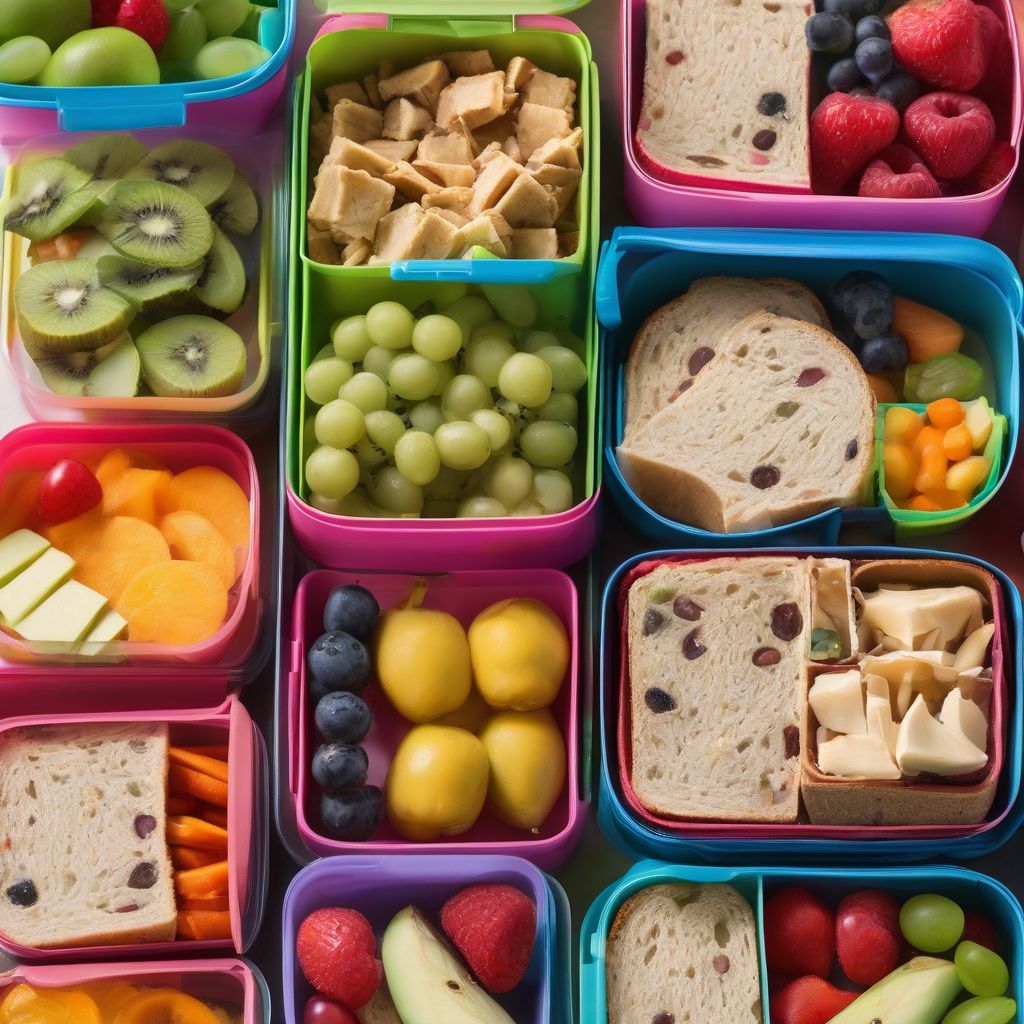“Is my child ready for preschool?” As a parent, this question has likely crossed your mind, bringing with it a mix of excitement and those understandable first-time jitters. Transitioning to preschool is a significant milestone, marking a new chapter filled with learning, friendships, and independence for your little one. While it’s natural to feel a few butterflies, the key to a happy and successful experience lies in preparation.
Think of it like this: you wouldn’t embark on a journey without packing your bags, would you? Prepping your child for preschool is about giving them the tools and confidence they need to thrive in this new, exciting world. As a nutritionist and meal prep coach, I’ve seen firsthand how a little preparation can make all the difference, and the same principle applies to getting your little learner ready for school.
This guide is packed with practical tips and insights to make the transition to preschool smooth and enjoyable for both you and your child.
Nurturing Readiness: Building Essential Skills for Preschool
Before we dive into the specifics, let’s remember that “readiness” for preschool isn’t solely about knowing the ABCs or counting to ten. It’s just as much about fostering social and emotional skills that will empower your child to confidently navigate their new environment.
Social and Emotional Skills
- Playing with Peers: Encourage playtime with other children, whether at the park, playdates, or in group activities. This helps them learn valuable social skills like sharing, taking turns, and cooperating.
- Expressing Emotions: Equip your child with the language to express their feelings. Instead of saying, “Don’t be sad,” try, “It looks like you’re feeling sad. Can you tell me about it?”
- Following Simple Instructions: Start with one or two-step directions at home. “Please put your toys away and come wash your hands for lunch.” This helps build listening skills and a sense of responsibility.
- Separation Confidence: Practice short separations, like leaving your child with a trusted caregiver for an hour or two. Gradually increasing the time apart helps them build confidence and understand that you’ll always return.
Practical Skills
- Self-Care Routines: Empower your child to handle basic tasks independently, such as using the toilet, washing their hands, and getting dressed. Make it fun with catchy songs or games!
- Lunchtime Confidence: If your child will be bringing lunch, involve them in preparing it. Use containers they can open easily and pack familiar, favorite foods.
- Story Time: Reading aloud is a superpower! It not only fosters a love for books but also builds vocabulary, listening comprehension, and pre-literacy skills.
Building Bridges: Easing the Transition to Preschool
Change can be both exciting and a little daunting for little ones. These strategies can help make the transition to preschool smoother:
Before the First Day
- Visit the School: Familiarity breeds comfort. Schedule a visit to the preschool with your child. Let them explore the classroom, meet their teacher, and get a feel for the environment.
- Meet and Greet: If possible, arrange playdates with future classmates. Knowing a familiar face can make a world of difference on the first day.
- Establish Routines: Start incorporating preschool-like routines into your day, such as waking up earlier, having lunch at a specific time, and practicing quiet time.
- Talk About It: Engage in positive conversations about preschool. Read age-appropriate books about starting school or role-play scenarios to address any anxieties.
During the First Few Weeks
- Morning Calm: Mornings can be hectic. Prepare as much as possible the night before to ensure a calm and stress-free start to the day.
- Pack a Comfort Item: A familiar object, like a favorite stuffed animal or small blanket, can provide comfort and security during those initial days.
- Goodbyes are Short and Sweet: Lingering goodbyes can sometimes increase anxiety. Give a warm hug and kiss, reassure them you’ll be back, and leave confidently.
- Stay Connected: Maintain open communication with your child’s teacher. Share any concerns or observations to ensure your child’s well-being and smooth adjustment.
Nurturing a Love for Learning: Making Preschool Fun
Preschool should be an adventure, filled with discovery and joy! Here’s how you can foster a positive attitude towards learning:
- Play-Based Exploration: Encourage curiosity and a love for learning through play. Turn everyday activities into fun learning opportunities. Count blocks, sort toys by color, or create stories together.
- Creative Expression: Provide opportunities for art, music, and movement. These activities not only enhance creativity but also develop fine motor skills and self-expression.
- Celebrate Small Victories: Every milestone, no matter how small, deserves recognition. Celebrate your child’s efforts and progress, fostering a sense of accomplishment and motivation.
The Importance of Nutrition: Fueling Little Learners
As a nutritionist, I can’t stress enough the impact of food on a child’s overall well-being, especially during important transitions.
- Nutrient-Rich Breakfast: Start the day with a balanced breakfast that includes protein, whole grains, and fruits. Think oatmeal with berries and nuts or whole-wheat toast with avocado and eggs.
- Brain-Boosting Snacks: Pack nutritious snacks to keep energy levels stable throughout the day. Cut-up fruits and vegetables, yogurt pouches, or whole-grain crackers with cheese are excellent options.
- Hydration Station: Ensure your child drinks plenty of water throughout the day. Pack a fun water bottle and encourage regular sips.
 Healthy Lunch Ideas for Kids
Healthy Lunch Ideas for Kids
[amazon bestseller=”bento-boxes-for-kids”]
Embracing the Journey: Your Child’s Preschool Adventure Awaits
Remember, starting preschool is a significant milestone, marking a new chapter in your child’s life—and yours as a parent. By fostering their independence, building essential skills, and approaching this transition with positivity, you’re setting them up for a successful and enriching experience.
Did you find these tips helpful? Share your thoughts and experiences in the comments below! And if you’re looking for more resources to support your child’s journey, be sure to explore the other articles on our site.
